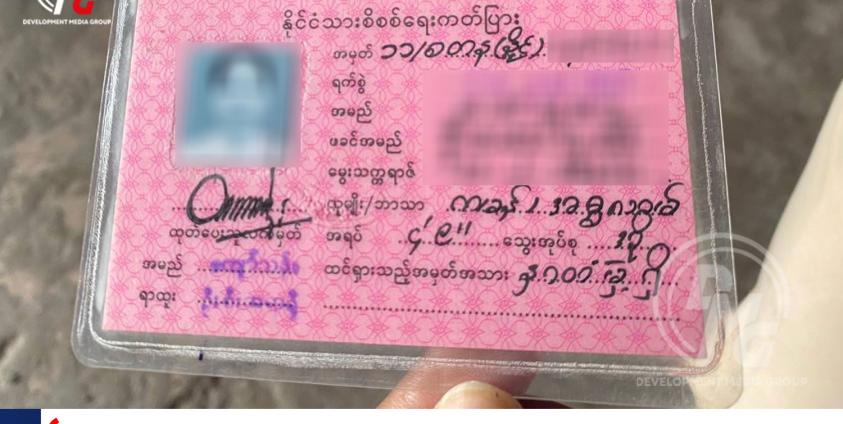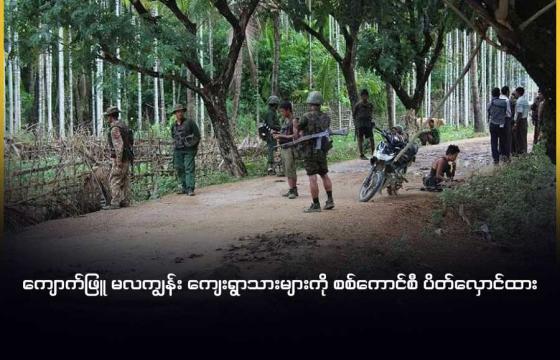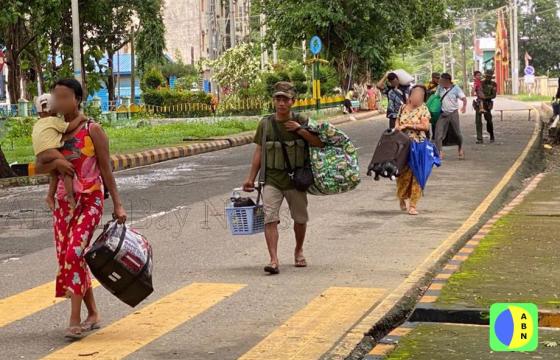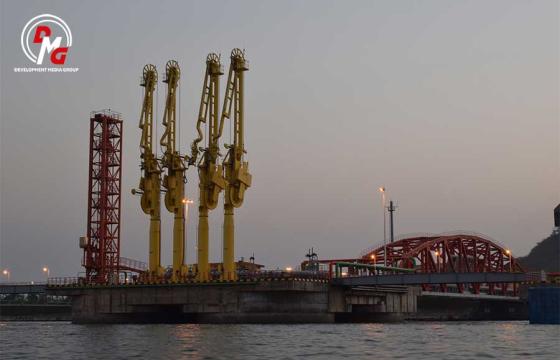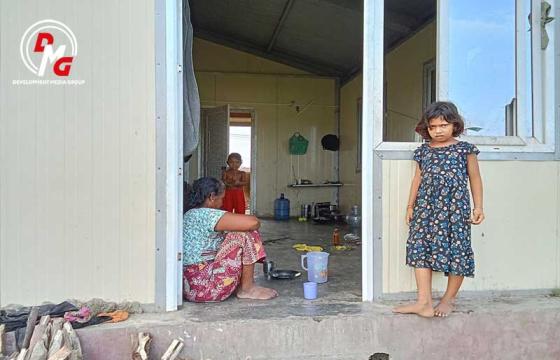Individuals with direct experience have reported to DMG that members of the Kaman ethnic group, who practice Islam and are considered part of the Rakhine national community, are not permitted to apply for passports at the Myanmar Passport Office in Sittwe.
Kaman ethnic groups were previously granted passports; however, this privilege has been suspended since September 2022.
"They told us that being Kaman-Islam, we are not eligible for passports, referring to Nay Pyi Taw's suspension of passport issuance to our community. When I requested them to provide evidence of this suspension, they were unable to produce any. I've also encountered difficulties regarding this matter at the office," explained U Min Chey from Thet Kae Pyin (Kaman) Village, Sittwe Township.
The Kaman ethnic groups in Rakhine state primarily reside in Sittwe, Ramree, and Thandwe townships. While the majority follow Islam, there are also some who practice Buddhism.
Kaman ethnic groups seek employment opportunities in foreign countries due to job scarcity and increasing commodity prices. However, they often face arrests when attempting to travel through illegal routes because they have not been issued passports.
U Thein Tun from Thin Ga Net (Kaman) Village, Sittwe Township, expressed, "If we attempt to go abroad due to livelihood hardships, we are not granted passports. Despite possessing National Registration Cards, we are still denied passports. If we try to travel in our own way, we risk being arrested. Our people are being deprived of many basic human rights."
It is said that since they are not granted passports in Rakhine State, some Kaman individuals travel to other regions and states to apply for passports.
"We were not issued a passport in Rakhine, and we hoped to obtain one in Yangon. However, even in Yangon, we were unable to secure a passport. Consequently, we traveled to Myawaddy and successfully obtained a passport, although it came at a significant cost," Ma Khin Thuza explained.
Ma Khin Thuza traveled from Thin Ga Net Village, Sittwe Township, to Myawaddy Township, Karen State, to obtain a passport because Rakhine State did not issue her one.
The Kaman ethnic group, followers of Islam, possess national registration cards (NRCs), yet they claim discrimination because they are denied passports.
Ma Saw Khin Oo from Thar Yar Kone Village, Sittwe Township, expressed, "We wish for passports to be granted to individuals without regard to their race or religion. The fact that we, as Muslims, are denied passports while others receive them should not be the case. We advocate for equal opportunities and wish to eliminate discrimination."
When questioned by DMG, an official from the Myanmar Passport Office (Sittwe) declined to meet. U Hla Thein, spokesperson for the Rakhine State Military Council, did not respond to phone calls when contacted.
When making an inquiry with a DMG source close to the Myanmar Passport Office (Sittwe), the source informed DMG, "They do not issue passports to Kaman individuals who practice Islam. They used to issue them in the past. However, the Yangon head office has instructed them not to issue passports now. In cases of emergency, they will consider issuing passports if you obtain permission from higher authorities."
The Kaman ethnic group primarily resides in Thandwe and Sittwe townships, with smaller populations scattered in Ramree, Kyaukpyu, Yangon, and Mandalay. According to the 2018-2019 records, there are over 50,000 Kaman individuals in Myanmar.


